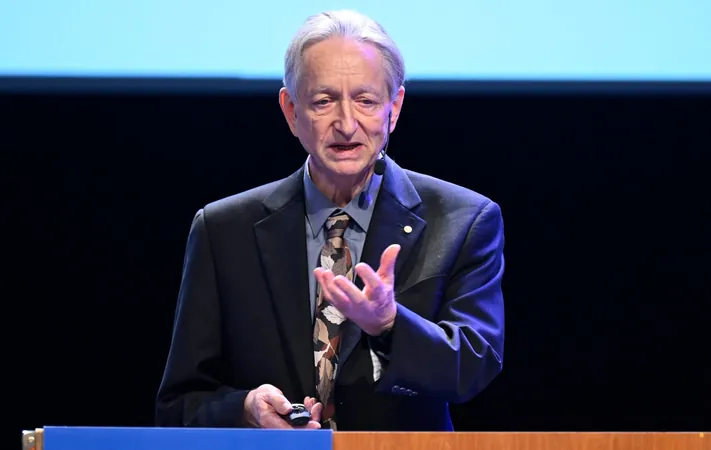
AI Pioneer Geoffrey Hinton Backs Elon Musk's Legal Battle Against OpenAI's Profit Shift
2024-12-30
Author: Chun
AI Pioneer Geoffrey Hinton Backs Elon Musk's Legal Battle Against OpenAI's Profit Shift
In a significant move that highlights growing concerns about the ethical direction of artificial intelligence, a coalition of diverse voices has united against OpenAI's controversial decision to transform itself into a fully for-profit entity. Among the most notable supporters of this opposition is Geoffrey Hinton, widely recognized as the "godfather of AI" and a recipient of both the Nobel and Turing awards.
On Monday, Encode, an advocacy organization driven by youth from multiple countries, filed an amicus brief in support of Elon Musk's ongoing lawsuit designed to halt OpenAI's shift away from its original non-profit status. Hinton, who has been vocal about the potential risks associated with AI, expressed grave concerns regarding this transformation. He stated, “OpenAI was founded as an explicitly safety-focused non-profit and made a variety of safety-related promises in its charter. It received numerous tax and other benefits from its non-profit status. Allowing it to tear all of that up when it becomes inconvenient sends a very bad message to other actors in the ecosystem.”
Highlighting the high stakes of the conversation surrounding AI, Hinton recently elaborated on the danger AI poses to humanity, suggesting a frightening 10 to 20 percent probability of human extinction due to AI developments in the next 30 years. This stark assessment underscores the urgency of discussions around AI ethics and safety.
Currently, OpenAI operates as a profit-driven entity governed by a non-profit board, which provides some level of oversight regarding its mission and funding. The organization announced its intention to reclassify itself as a traditional for-profit corporation last week, a move Musk, a co-founder of OpenAI, has been vehemently opposed to, prompting him to file a federal lawsuit for a preliminary injunction in November.
Encode's brief argues that OpenAI's conversion to a Delaware public benefit corporation would fundamentally undermine the specific safety commitments that the non-profit had pledged to uphold. It raises critical questions about whether a for-profit corporation can genuinely maintain OpenAI’s promise to prioritize collective welfare over competition, especially regarding the development of artificial general intelligence (AGI).
Emphasizing the potential societal impact of these developments, Sneha Revanur, the president and founder of Encode, stated, “Today, a handful of companies are racing to develop and deploy transformative AI, internalizing the profits but externalizing the consequences to all of humanity. The courts must intervene to ensure AI development serves the public interest.”
As the AI industry continues to evolve and expand, the legal and ethical ramifications of profit-driven motives in technology development are coming to the forefront. Observers are closely watching the outcome of Musk's lawsuit and its implications for the future of AI governance and safety. Will the courts prioritize public welfare over corporate profits? The stakes have never been higher.

 Brasil (PT)
Brasil (PT)
 Canada (EN)
Canada (EN)
 Chile (ES)
Chile (ES)
 Česko (CS)
Česko (CS)
 대한민국 (KO)
대한민국 (KO)
 España (ES)
España (ES)
 France (FR)
France (FR)
 Hong Kong (EN)
Hong Kong (EN)
 Italia (IT)
Italia (IT)
 日本 (JA)
日本 (JA)
 Magyarország (HU)
Magyarország (HU)
 Norge (NO)
Norge (NO)
 Polska (PL)
Polska (PL)
 Schweiz (DE)
Schweiz (DE)
 Singapore (EN)
Singapore (EN)
 Sverige (SV)
Sverige (SV)
 Suomi (FI)
Suomi (FI)
 Türkiye (TR)
Türkiye (TR)
 الإمارات العربية المتحدة (AR)
الإمارات العربية المتحدة (AR)